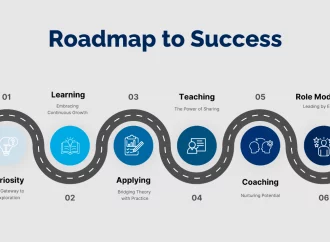Attention all athletes! Did you know that getting enough sleep is just as important to your performance as rigorous training and proper nutrition? Studies show that lack of sleep can negatively impact physical abilities, cognitive function, and even increase the risk of injury. So, if you want to up your game and improve recovery time,
Attention all athletes! Did you know that getting enough sleep is just as important to your performance as rigorous training and proper nutrition? Studies show that lack of sleep can negatively impact physical abilities, cognitive function, and even increase the risk of injury. So, if you want to up your game and improve recovery time, it’s time to prioritize quality shut-eye. In this blog post, we’ll explore the science behind why athletes need more sleep for optimal health and performance. So grab a cup of coffee (or better yet – some chamomile tea!) and let’s dive in!
How Much Sleep Do Athletes Need?
Athletes need more sleep than the average person to perform at their best. While the average person needs 7-8 hours of sleep per night, athletes need 9-10 hours to recover from training and competition.
Sleep is essential for recovery because it allows the body to repair itself and adapt to the stresses of exercise. When we sleep, our bodies produce hormones that help us recover from physical activity. These hormones include growth hormone, which helps repair muscles and tissues, and testosterone, which helps build muscle mass. Sleep also helps improve our immune system function and reduces inflammation.
Athletes who don’t get enough sleep are at a greater risk for injuries, illness, and burnout. They may also have trouble concentrating, making decisions, and reacting quickly. So if you want to perform your best, make sure you’re getting enough shut-eye!
The Benefits of Sleep for Athletes
When it comes to peak performance, athletes need to be well-rested. Sleep is critical for both physical and mental recovery after strenuous exercise. When athletes don’t get enough sleep, they are more likely to experience reduced reaction time, impaired coordination, and decreased decision-making ability.
In addition to improved performance, adequate sleep also helps athletes recover from injuries more quickly. A good night’s sleep helps the body repair muscle tissue and replenish energy stores. Studies have shown that people who sleep less than seven hours a night are at greater risk for injury.
So how much sleep do athletes need? It depends on the individual, but most experts recommend that athletes get at least eight hours of sleep per night. To ensure optimal rest and recovery, athletes should create a regular sleep schedule and avoid unhealthy behaviors like sleeping with the television on or using electronic devices in bed.
The Impact of Sleep Deprivation on Athletic Performance
Sleep deprivation has a significant impact on athletic performance. A lack of sleep can lead to decreased reaction time, impaired coordination, and increased risk of injury. It can also cause fatigue, which can negatively affect endurance and stamina. Sleep deprivation can also impair cognitive function, which can impact an athlete’s ability to make split-second decisions on the field or court.
In addition to the direct effects of sleep deprivation on performance, it can also indirectly impact an athlete’s ability to recover from training sessions and competitions. A lack of sleep can lead to increased levels of inflammation, which can delay the repair and regeneration of muscles. It can also adversely affect hormonal balance, which can further impact recovery.
While athletes need more sleep than the average person, they are often unable to get the recommended amount due to their busy schedules. However, there are some steps that athletes can take to improve their sleep habits. Creating a regular sleep schedule and avoiding caffeine before bedtime can help promote better sleep quality. Establishing a relaxing bedtime routine and setting aside time for wind-down activities before bed can also be helpful. Finally, creating a comfortable and dark sleeping environment free from distractions will create an optimal environment for restful sleep.
Tips for Getting a Good Night’s Sleep
Sleep is important for everyone, but it’s especially crucial for athletes. A good night’s sleep can help improve performance and recovery from training.
Here are some tips for getting a good night’s sleep:
1. Establish a regular sleep schedule. Go to bed and wake up at the same time each day, even on weekends. This will help regulate your body’s natural sleep rhythm.
2. Create a relaxing bedtime routine. Avoid watching TV or working on the computer in the hours leading up to sleep. Instead, take a warm bath or read a book to help you wind down.
3. Keep your bedroom dark, quiet, and cool. These conditions are ideal for sleeping and can help you fall asleep more quickly.
4. Practice some relaxation techniques before bedtime. Try deep breathing or progressive muscle relaxation to help you let go of the day’s stresses and prepare for sleep.
Conclusion
As you can see, the science of sleep and recovery is a complex field but one that athletes should pay attention to. A proper sleep schedule is key for athletes who want to maximize their performance on the court or field. Not only will it help them stay at peak physical condition, but also ensure they are mentally prepared for competition day after day. If you’re an athlete looking for an edge over your opponents, make sure you’re getting plenty of restful sleep each night!





















Leave a Comment
Your email address will not be published. Required fields are marked with *